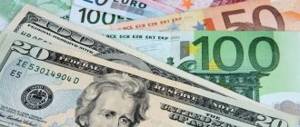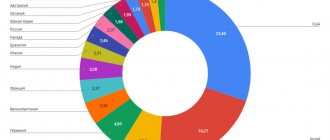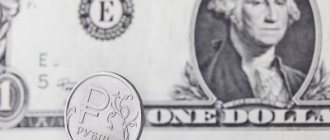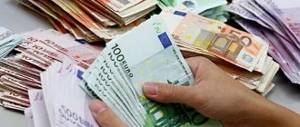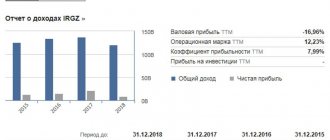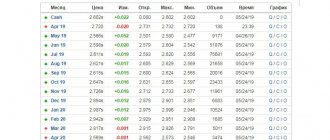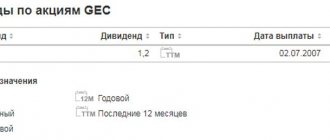The EUR/AUD currency pair displays the ratio of the value of the euro to the Australian dollar.
In this case, the single currency acts as the base one, and the second one performs the function of the quoted one. Thus, the value of one euro is indicated in the equivalent of an Australian dollar.
EUR/AUD belongs to the group of cross rates, but this does not prevent it from being widely popular among Forex traders and binary options traders. It is characterized by a reduced level of volatility and acts as a non-technical pair.
Interesting Facts
The EUR/AUD pair is quite controversial, but in today's economy, it can be a real boon for traders who prefer transactions with above-average risk and good margin. To understand this issue, you need to understand what determines the strength of the Australian dollar.
This is important because when paired with the euro, it is the AUD that looks like a more promising object for analysis. The EU currency is not tied to any factors other than bank manipulation, so it looks more stable against the backdrop of the vulnerable Australian dollar.
The main factor in the change in the value of the AUD is the difference in interest rates. This is the relative benefit that an investor receives from investing in the assets of one country compared to another.
For example, if interest rates in Australia are 1.50% and in the EU 2.40%, an investor can make a greater profit by buying assets in Europe. This causes the value of AUD to decline as investors sell AUD and buy Euros.
Historically, the AUD has tracked prices for Australia's major commodity exports and the country's general terms of trade. This is because in order to purchase Australian exports, Australian trading partners also need to buy AUD and sell their local currency to complete the transaction.
The dynamics can be seen in the fact that iron ore prices, which, due to the ebb and flow of Chinese demand, have underpinned the strength and weakness of the AUD for several decades.
The Australian government's credit rating may have a minor impact on the AUD. This is because Australia's credit rating influences the risk profile of its debt, which directly affects the cost the government must pay for the debt it owes.
A poor credit rating makes buying a country's debt riskier and less attractive, reducing overall demand for its currency.
While this has not been an issue in recent history, as the Australian government has maintained a AAA credit rating for over 15 years, events that have threatened this status have led to short-term weakness in the AUD in the past.
The meaning of each currency in the EUR/AUD pair
The euro is the single currency of the European Union, the official monetary unit of 18 countries and has national status in 9 countries. Introduced into non-cash circulation on January 1, 1999, and into cash circulation on January 1, 2002 in the form of coins and banknotes. Currency control is carried out by the ESCB.
In 2008, a record exchange rate of the euro against the US dollar was recorded - 1.6038, and the minimum value was 1.24 in different time periods.
The Euro Index is a specific financial and economic indicator that reflects the movements of a single currency in the G5 basket of the US dollar, Swiss franc, Japanese yen, British pound and Swedish krona.
The Australian dollar is the official currency of the Commonwealth of Australia. It ranks sixth in the ranking of the most traded world currencies, and also accounts for about 5 percent of all foreign exchange transactions.
It is popular due to the high interest rates in Australia, the relative freedom of the foreign exchange market from government pressure, as well as the stability of the economic and political regime in the country.
The high level of profitability of the Australian dollar makes it attractive for trading on interest rate differences - the carry trade mode. The minimum exchange rate against the US dollar was recorded in the spring of 2001 - 0.4775, and the maximum at around 1.0650 - in 2011.
Features of pricing and market analysis
The ratio of the euro to the Australian dollar is the currencies of two different countries located in almost different regions of our planet.
The main factor that influences the state of quotes is the difference in interest rates between the European continent and Australia; it is also important to pay attention to the general trend of the international market, taking into account the cost of raw materials and basic consumer products.
The EUR/AUD currency pair is a non-technical, cross-pair in the financial market due to the peg of both currencies to the value of the US dollar. To make forecasts, you first need to analyze the EUR/USD and AUD/USD pairs, and then draw a picture of the target asset.
The greatest correlation is observed with such assets as Euro-Yen, Dollar-Yen, and Pound-Yen. However, the relationship is very dynamic, since the trend of the graph changes when moving to different time intervals.
It is recommended not to use static indicators when analyzing these trading assets.
If we talk about market analysis of EUR/AUD, then we can focus on fundamental factors to determine the general mood of the asset in the market. If problems arise on the European continent, investors will be less confident in working with the euro, and the dollar-Australian exchange rate is affected by gold production volumes.
How to trade
The Australian dollar is one of the top five most traded currencies on Forex. There are several reasons for this, but the most likely is that AUD is an indicator of growth and risk in global financial markets.
It is often used as a barometer and trading device to benefit from short-term changes in sentiment regarding global economic growth and market risk.
This is partly due to the fundamental fact that the Australian economy, as a commodity currency, is highly exposed to changes in global economic activity.
Therefore, when the market is in good spirits, the AUD often rises, and when pessimism prevails, the AUD often falls. The same picture is observed in pairs with the euro.
As an example, we can consider the situation with the exchange rate for 2019. In January, 1 AUD was worth 0.65 euros, but with the growing momentum in the US trade war, the Australian dollar weakened against the euro and by July dropped to 0.61 EUR per 1 AUD.
It is often said that AUD "goes up the escalator and down the elevator shaft." This means that when the AUD rises, it does so gradually, but it falls suddenly. The statement is fully confirmed by the exchange rate graph over the last 5 years.
As a result, trading the Australian dollar is considered relatively risky, especially compared to its major G4 peers. In the EUR/AUD pair, this is especially clear, since the euro is also prone to sharp jumps and changes.
However, AUD is a highly liquid currency, meaning that for those with the appropriate risk appetite, AUD trading can provide a trader with ample opportunity to speculate on changes in global financial markets.
How to trade the EUR/AUD currency pair?
This is a fairly popular asset for conducting transactions not only in the Forex market, but in the binary options sector. With this broker you can earn up to 85-90 percent on transactions and effectively increase your profits . As experts note, in the summer of 2019, the volatility of EUR/AUD decreased by almost half - to 44 points daily.
Despite the fact that the currency pair reacts to statements from government officials, news events and economic indicators, the main pricing factor remains the movement of the euro and Australian dollar indices. This, in turn, influences the decisions of traders, as well as their activity and conclusion of transactions.
If the movement of indices is multidirectional, it means that a trend will form. In the case of a unidirectional index movement, the market will be in a flat zone. Below are graphs under different conditions of index movement - the quotes of the currency pair behave accordingly.
In addition, the rate can be affected by the levels of accumulation of market maker orders - the chart moves from one level to another. At the same time, strong and minor levels are clearly visible.
All trading trends for the EUR/AUD currency pair are divided into the following:
- Long-term – definition on a two-day, weekly or monthly chart. A change in trend is indicated by a classic reversal pattern (for example, Spike, Cup and Handle, Head and Shoulders), and divergences may be observed;
- Medium-term – definition on the 8-hour chart. There is a movement from one market maker congestion level to the next, and false breakouts or rebounds may occur.
The trend direction may be determined by financial and economic news in the region of the European Union and Australia. The policies of both countries are radically different, which makes it difficult to conduct fundamental analysis and make forecasts for the asset price.
If macroeconomic statistics for Europe are based on data from the industrial sector, then the situation in the Australian market depends on the level of agriculture and natural resources.
During the Pacific and European sessions, the pair’s movement is characterized by increased volatility, while during the American session it slows down and may even go sideways.
The peculiarity of EUR/AUD is that it is unpredictable in its fluctuations in different directions, which is attractive for experienced traders and scalpers.
With the FinmaxFX broker, your currency pair trading will always be profitable and successful, you can take advantage of the benefits of cooperation with the company and expand your financial trading horizons.
EUR/AUD chart
A live chart for the EURAUD currency pair is an ideal solution for those who do not want to install MT4 for analysis.
[[spread-table-title-currency]]
| Tool | Exchange Rates | Spread | Price |
| AUD/CAD | Australian Dollar - Canadian Dollar Chart | 3.8 | 0.89152 |
| AUD/CHF | Australian dollar - Swiss franc chart | 3.7 | 0.65562 |
| AUD/JPY | Australian Dollar - Japanese Yen chart | 29.8 | 73.631 |
| AUD/NZD | Australian dollar - New Zealand dollar chart | 3.2 | 1.03292 |
| AUD/USD | Australian Dollar - US Dollar Chart | 2.7 | 0.67598 |
| CAD/CHF | Canadian dollar - Swiss franc chart | 3.9 | 0.73529 |
| CAD/JPY | Canadian Dollar - Japanese Yen chart | 3 | 82.58 |
| CHF/JPY | Swiss franc - Japanese yen chart | 4 | 112.283 |
| EUR/AUD | Euro - Australian Dollar Chart | 3.3 | 1.62976 |
| EUR/CAD | Euro - Canadian Dollar Chart | 3.4 | 1.45315 |
| EUR/CHF | Euro - Swiss Franc Chart | 3 | 1.06872 |
| EUR/DKK | Euro - Danish Krone Chart | 5.2 | 7.47266 |
| EUR/GBP | Euro - British Pound Chart | 2.8 | 0.84368 |
| EUR/JPY | Euro - Japanese Yen chart | 3.4 | 120.017 |
| EUR/MXN | Euro - Mexican Peso Chart | 37 | 20.8184 |
| EUR/NOK | Euro - Norwegian Krone Chart | 40 | 10.0734 |
| EUR/NZD | Euro - New Zealand Dollar chart | 7 | 1.68353 |
| EUR/PLN | Euro - Polish Zloty Chart | 25 | 4.27646 |
| EUR/RUB | Euro - Russian Ruble chart | 73.3 | 69.4027 |
| EUR/SEK | Euro - Swedish Krona chart | 37 | 10.6046 |
| EUR/TRY | Euro - Turkish Lira Chart | 12.5 | 6.55018 |
| EUR/USD | Euro - US Dollar Chart | 2.5 | 1.10184 |
| GBP/AUD | British pound - Australian dollar chart | 5.9 | 1.93133 |
| GBP/CAD | British pound - Canadian dollar chart | 6.8 | 1.72207 |
| GBP/CHF | British pound - Swiss franc chart | 5.5 | 1.26648 |
Latest forecasts and analytics on the exchange rate of the Euro/Australian dollar (EUR/AUD) currency pair for today, tomorrow, for a month and for 2021 in real time. What will happen to EUR/AUD quotes in the near future? What are the forecasts and prospects for 2022 and 2023? Technical and fundamental analysis of the Euro/Australian dollar pair from leading global and domestic experts and analysts.
MUFG bets on euro growth
11 June 2021, 13:52617The bank notes the growing attractiveness of the euro in light of the efforts of European financial and political institutions. Mitsubishi UFG analysts maintain a long position in EURAUD with a target of 1.67 and a stop at...
Announcement of main events for September 24
September 24, 2021, 10:09666Today the following news may affect market dynamics:...
Announcement of main events for August 6
August 6, 2021, 10:18608 Dear traders, Please note that there are important economic events that will lead to increased volatility in a number of instruments. We recommend taking this information into account when trading….
Announcement of main events for August 6
August 6, 2021, 10:18755 Dear traders, Please note that there are important economic events that will lead to increased volatility in a number of instruments. We recommend taking this information into account when trading….
Announcement of main events for July 2
July 2, 2021, 10:43664Today the following news may affect market dynamics:...
Announcement of main events for May 13
May 13, 2021, 09:54744Today the following news may affect market dynamics:...
ANZ advises buying the euro while it's cheap
8 June 2021, 16:35888 EUR/AUD could rise as investor focus on weakness in the Australian housing market increases while the ECB seeks to tighten monetary policy, according to ANZ analysts from...
Euro/dollar stabilized at 1.2450
31 January 2021, 16:00888On Wednesday, during trading in Europe, the euro/dollar pair managed to rise to 1.2463. Its recovery was helped by the general weakening of the American currency and the growth of the main cross-pairs: EUR/GBP, EUR/JPY, EUR/AUD...
EUR/AUD: we are waiting for a new wave of growth
23 October 2021, 16:251053The EUR/AUD pair retreated from local highs. But in the coming days it has a chance to resume growth. ...
EUR/AUD: growth target 1.5055
4 October 2021, 16:161028 The EUR/AUD pair resumed its growth and there is every chance that the pair will continue its upward movement.
One of the main reasons will be the difference in the mood of the Central Banks... show more
